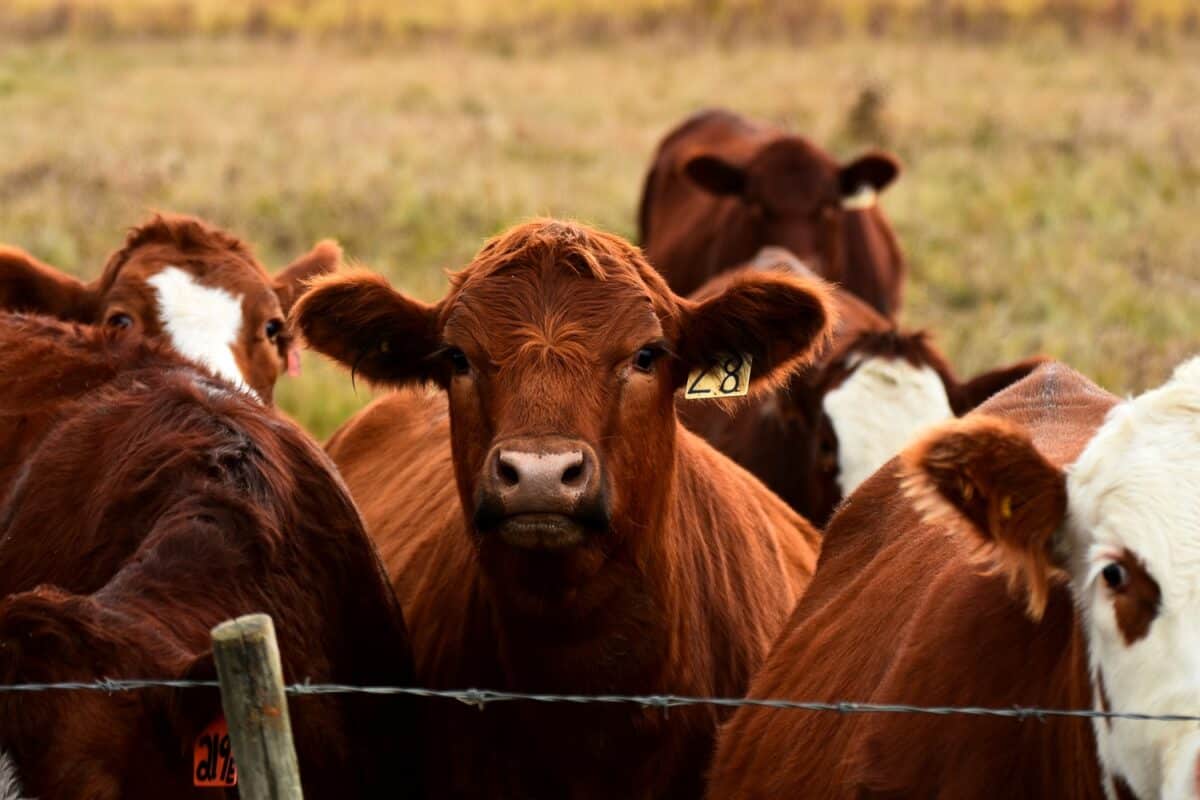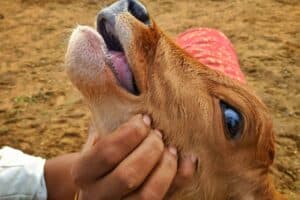The confirmation of foot-and-mouth disease at Karan Beef's Heidelberg feedlot has further thrown South Africa’s cattle industry into crisis.

Farmers and organised agriculture are concerned about the outbreak of foot-and-mouth (FMD) disease in South Africa, which is having devastating financial consequences for farmers, but is not harmful to humans.
A case of FMD was confirmed at a feedlot of Karan Beef near Heidelberg in Gauteng this week.
Karan Beef spokesperson senior feedlot veterinarian Dr Dirk Verwoerd said a case of FMD was confirmed at its feedlot facility in Heidelberg on Monday.
Outbreak will ‘disrupt national supply chain’
“The outbreak is during peak weaning season and will significantly disrupt the national supply chain. Farmers may be forced to hold calves longer than usual due to limited feedlot capacity. Karan Beef has suspended all exports,” he said.
Verwoerd said there was no risk to human health but local beef supply may be affected in the short term.
“Immediate action has been taken in collaboration with provincial and national veterinary services to contain the outbreak and ensure the ongoing safety of South Africa’s beef supply.
“Despite Karan Beef’s strict adherence to biosecurity protocols, including multiple individual inspections, 28-day quarantine periods and mouthing examinations over the past two years, FMD can still be transmitted by subclinical carriers that do not show visible symptoms, making detection extremely challenging.”
Verwoerd said 120 000 cattle were currently housed at the Heidelberg facility. “Investigations are ongoing to determine the source of the outbreak. Approximately 2% of the herd is currently infected.”
ALSO READ: Farmers ‘on the edge’ over crippling foot and mouth disease
Agriculture sector blames state for delayed response
He said a controlled slaughter-out process will be implemented once vaccinations are completed under veterinary supervision.
Southern African Agri Initiative president Dr Theo de Jager said the organisation has been engaging with the department of agriculture since December 2024, when the first rumours of FMD began circulating.
“It took months before the outbreak was officially declared and resources were mobilised to combat it,” he said.
De Jager said farmers have since reported seeing cattle being transported on trucks or trailers to auctions daily, especially in the Mpumalanga highveld.
Calls for stricter livestock movement and containment
“This crisis originates with the state. The department of agriculture, supported by local private veterinarians, must act immediately on observation of symptoms, identify the infected area and quarantine it.
“Failure to act swiftly ensures the further spread of the disease and causes devastating damage to the cattle industry,” he said.
De Jager said if the state was unable to control the movement of livestock from infected areas, successful meat and dairy production would no longer be viable.
Farmers left without income as prices rise
“Producers are not the only victims – consumers are likely to pay more for meat. Farmers in the expanded infected area, however, will not benefit from these higher prices, as they are prohibited from selling their livestock.”
De Jager said if farmers cannot sell their livestock, their farms have no income.
TLU SA and the Red Meat Producers’ Organisation have urgently appealed to the government to put a disaster management programme or emergency fund in place to aid producers.
TLU SA chair Bennie van Zyl said grassroots-level producers are in a dire situation. “Farms are effectively being removed from circulation without any support.”
Highly contagious
- According to the World Organisation for Animal Health, foot-and-mouth disease (FMD) is a severe, highly contagious viral disease of livestock that has a significant economic impact. It affects cattle, swine, sheep, goats and other cloven-hoofed ruminants.
- “The disease is rarely fatal in adult animals, but there is often high mortality in young animals due to myocarditis or, when the dam is infected by the disease, lack of milk.”
- FMD is characterised by fever and blister-like sores on the tongue and lips, in the mouth, on the teats and between the hooves.
- “The disease causes severe production losses, and, while the majority of affected animals recover, the disease often leaves them weakened and debilitated.”






